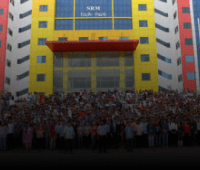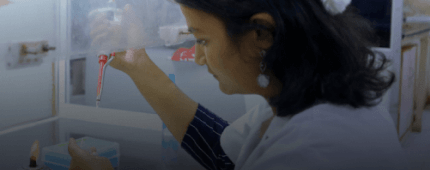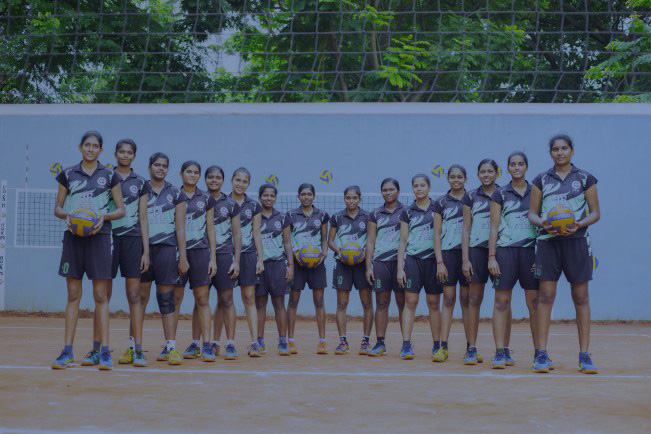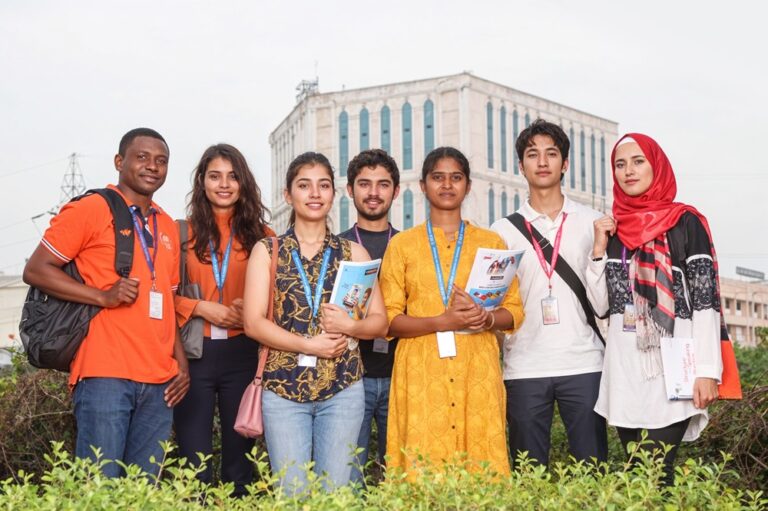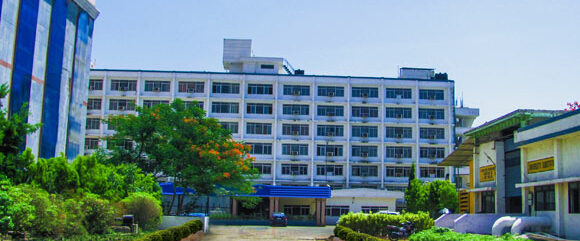M.Pharm. Pharmaceutical Quality Assurance
- Home
- Medicine & Health Sciences
- SRM College of Pharmacy
- M.Pharm. Pharmaceutical Quality Assurance
Campus
Kattankulathur (KTR)
Sanctioned Intake
10
Annual Fees
INR 1,50,000
Duration
2 years
About the Programme
Eligibility for M.Pharm
1. Candidate shall have passed a Bachelor’s degree in Pharmacy from a PCI approved institution.
2. Minimum of 50% aggregate of marks in Bachelor’s Degree.
3. Students should submit Pharmacist Registration Certificate obtained from the respective state pharmacy council at the time admission.
4. Age: Minimum age limit is 21 years on or before 31st December of year of Admission.
Program Outcomes
Domain Knowledge: Possess subjective knowledge of fundamental principles and core concepts related to Pharmaceutical Quality Assurance, including points of intersection with interdisciplinary areas.
Planning abilities: Demonstrate effective planning abilities including time management, resource management, and delegation skills, Quality assurance and organisational skills. Develop and implement plans and organise work to meet deadlines.
Research Aptitude: Possess a keen interest in acquiring latest research developments in the area of Pharmaceutical Quality Assurance
Modern practices: Identify and acquire, latest industrial tools related to pharmaceutical Quality Assurance and allied science, and be able to deploy them with thorough understanding of their capabilities and limitations.
Professional Behaviour: Practice time management, resource management, organization skills and offer strategies to meet deadlines. Work in a team and participate in lifelong learning and continuous improvement in the profession
Critical thinking: Possess sufficient proficiency in problem solving skills, based on analytical thinking and research-based approaches. Shall be able to identify and assess problems and find appropriate long-term solutions to them.
Ethics: Practice and adhere to ethical principles in personal and professional life and strive to spread these virtues in the society. Respect people for their individual identity and be unbiased towards others with respect to race, cast and creed, culture, sex, physical and mental debility
Communication skills: Speak, write, read and listen clearly in person and through electronic media in English and in at least one Indian language, and relate to the world by connecting with people, ideas, books, media and technology.
Conduct investigations of complex problems: Understand and contribute to analytical principles and computational tools through different models, software’s in order to provide solutions to complex matrices in drug analysis.
Environment and sustainability: Understand the effect of materials used in pharmaceutical analysis on environment, apply domain knowledge judiciously to minimize the negative impact of hazardous chemicals on environment from the view point of pharmaceutical research. To provide better greener analytical methods in the future.
Life-long Learning: Be open minded to keep acquiring latest tools and techniques related to pharmaceutical quality assurance from various sources and contribute to the existing knowledge by adding own experiences to the body of knowledge.
Program Educational Objectives
| No | Education Objective |
| PEO1 | Refining the Masters students of Pharmaceutical Quality Assurance with state-of-the-art facilities with updated knowledge and skills in analysis of drugs and pharmaceuticals. |
| PEO2 | Train the students with critical thinking to face the challenges in any pharmaceutical company in India and abroad. |
| PEO3 | Offer them with finest hands-on training in pharmaceutical analysis to empower the quality assurance professionals to serve in industry, academia and to become entrepreneur. |
| PEO4 | Demonstrate competency in incorporating latest tools like quality by design, design of experiment, technology transfer, etc. |
| PEO5 | Impart well-versed knowledge in calibration, validation and various ICH guidelines to work in pharmaceutical industry. |
Program Specific Outcomes
| PSO No | Specific Outcomes |
| PSO1 | Gain proficiency in regulatory procedures and their implementation within the Quality Assurance division of the pharmaceutical sector. |
| PSO2 | Achieve innovation by contributing to the development of protocols for new product formulations and analytical methods, leveraging modern technologies and to create documentation to ensure compliance with regulatory standards. |
| PSO3 | Develop the knowledge on Quality Management Systems (QMS) and Technology Transfer (TT) to facilitate the transfer of advanced technologies to implement quality audits to ensure the creation of safe, effective medicines for human use. |
how to apply
Step 1 - register
Sign up or Register for CET with basic details (Name, Email ID, Mobile No., State, Gender and Password). Your Email ID will act as your Username for the portal while the password will be set by you upon registration.
On successful registration, you will receive the confirmation message on your registered contact number and Email. Use the Username and Password to Login to your CET Account.
Step 2 - register
Nemo enim ipsam voluptatem quia voluptas sit aspernatur aut odit aut fugit, sed quia consequuntur magni dolores eos qui rationeNemo enim ipsam voluptatem quia voluptas sit aspernatur
On successful registration, you will receive the confirmation message on your registered contact number and Email. Use the Username and Password to Login to your CET Account.
Step 3 - register
Sign up or Register for CET with basic details (Name, Email ID, Mobile No., State, Gender and Password). Your Email ID will act as your Username for the portal while the password will be set by you upon registration.
On successful registration, you will receive the confirmation message on your registered contact number and Email. Use the Username and Password to Login to your CET Account.
Step 1 – register
Sign up or Register for CET with basic details (Name, Email ID, Mobile No., State, Gender and Password). Your Email ID will act as your Username for the portal while the password will be set by you upon registration.
On successful registration, you will receive the confirmation message on your registered contact number and Email. Use the Username and Password to Login to your CET Account.
Step 2 – register
Nemo enim ipsam voluptatem quia voluptas sit aspernatur aut odit aut fugit, sed quia consequuntur magni dolores eos qui rationeNemo enim ipsam voluptatem quia voluptas sit aspernatur
On successful registration, you will receive the confirmation message on your registered contact number and Email. Use the Username and Password to Login to your CET Account.
Step 3 – register
Sign up or Register for CET with basic details (Name, Email ID, Mobile No., State, Gender and Password). Your Email ID will act as your Username for the portal while the password will be set by you upon registration.
On successful registration, you will receive the confirmation message on your registered contact number and Email. Use the Username and Password to Login to your CET Account.


